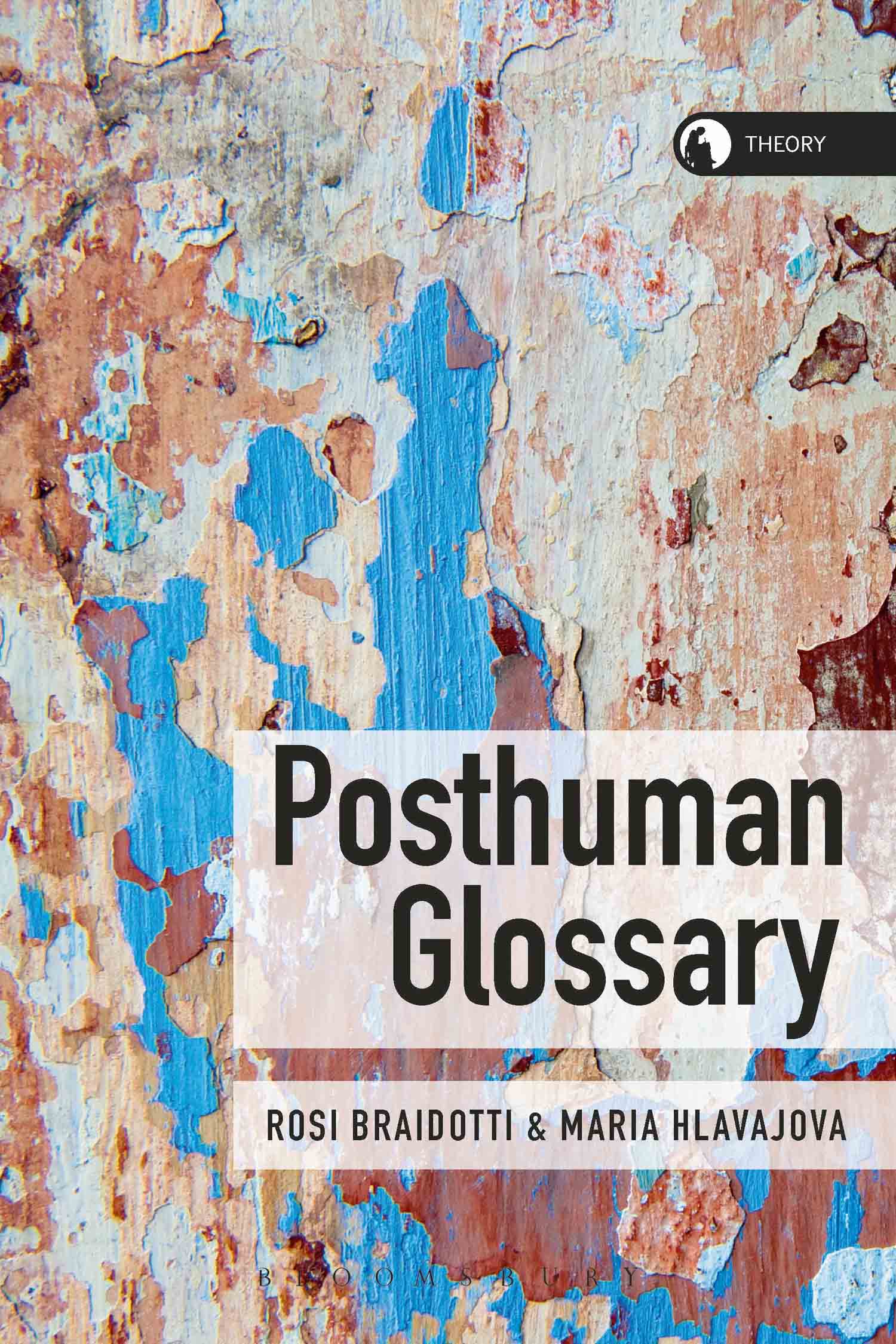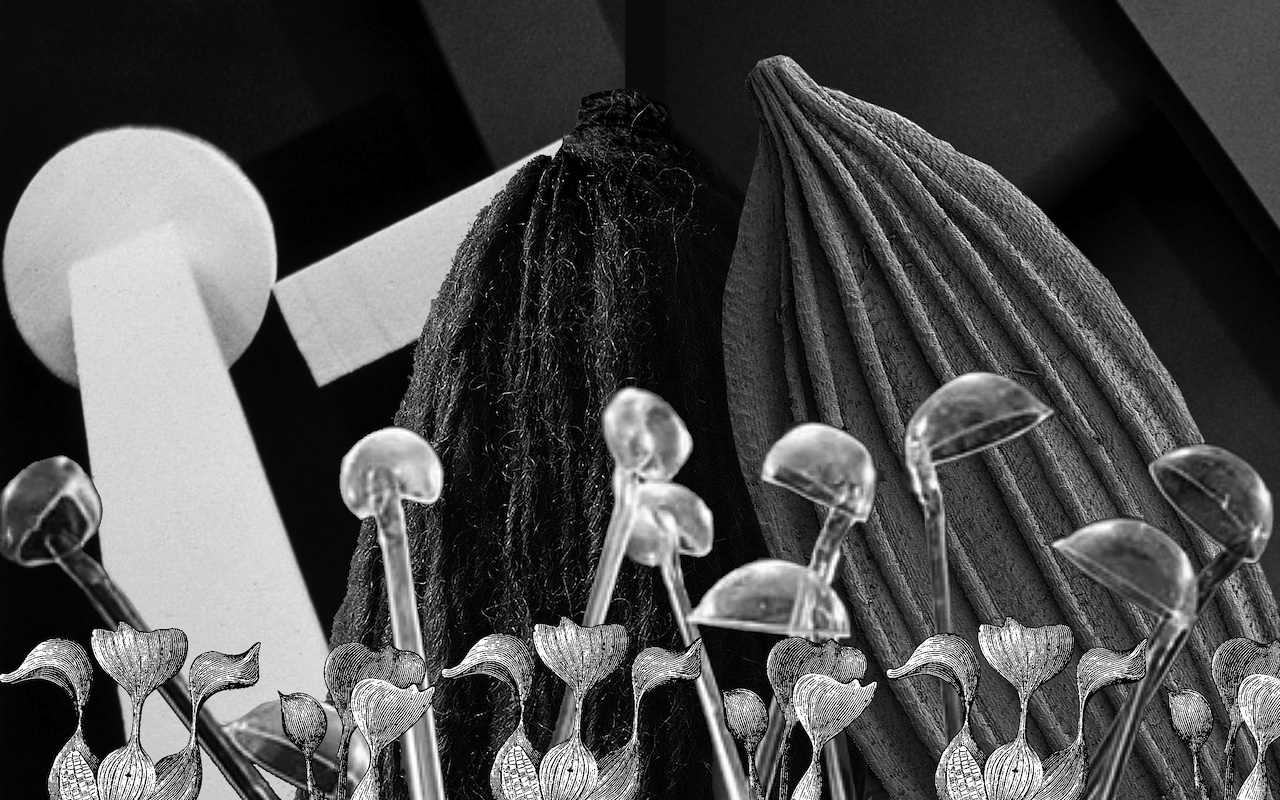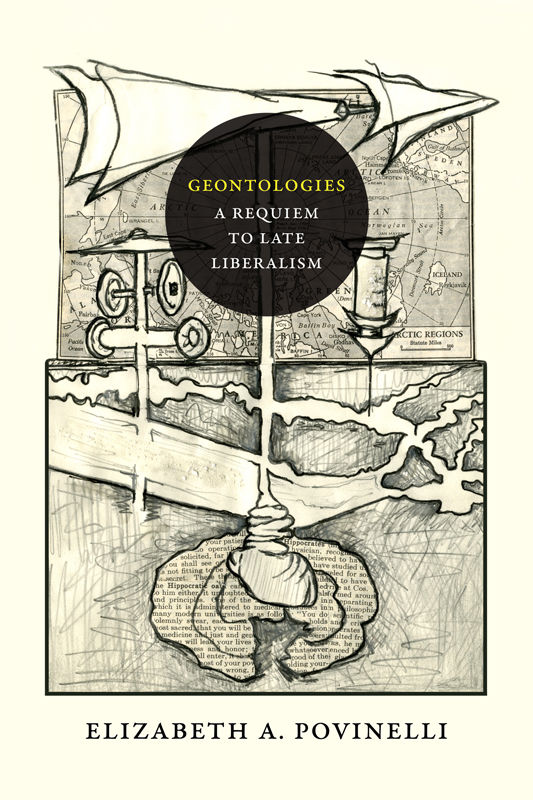Rosi Braidotti, Maria Hlavajova (eds.): Posthuman Glossary (2018)
Filed under book | Tags: · activism, algorithm, anthropocene, art, body, capitalism, capitalocene, cybernetics, ecology, feminism, human, inhuman, new materialism, philosophy, posthuman, posthumanism, theory

“If art, science, and the humanities have shared one thing, it was their common engagement with constructions and representations of the human. Under the pressure of new contemporary concerns, however, we are experiencing a “posthuman condition”; the combination of new developments–such as the neoliberal economics of global capitalism, migration, technological advances, environmental destruction on a mass scale, the perpetual war on terror and extensive security systems–with a troublesome reiteration of old, unresolved problems that mean the concept of the human as we had previously known it has undergone dramatic transformations.
The Posthuman Glossary> is a volume providing an outline of the critical terms of posthumanity in present-day artistic and intellectual work. It builds on the broad thematic topics of Anthropocene/Capitalocene, eco-sophies, digital activism, algorithmic cultures and security and the inhuman. It outlines potential artistic, intellectual, and activist itineraries of working through the complex reality of the ‘posthuman condition’, and creates an understanding of the altered meanings of art vis-à-vis critical present-day developments. It bridges missing links across disciplines, terminologies, constituencies and critical communities. This original work will unlock the terms of the posthuman for students and researchers alike.”
Publisher Bloomsbury Academic, 2018
Theory series
ISBN 1350030252, 9781350030251
xxxii+538 pages
Technosphere Magazine: Materials (2018)
Filed under dossier, magazine | Tags: · anthropocene, materials, matter, technosphere

“Stuff matters. In much of history, the real protagonists were the precious metals, burning hydrocarbons, superior aerogels, collapsing concrete, rare minerals, and toxic liquids. This goes for all chemical compounds, whether raw, processed, or newly designed, geogenic, biogenic, or anthropogenic. It is the inventory and also the political, ecologic, and economic criticality of the material world within which humans will always have to situate themselves. Inert matter constitutes the raw materials of life, while organic matter changes the chemical composition of other spheres, such as the atmosphere or the lithosphere. This is what Vladimir Vernadsky and others have taught us. Yet this eons-old circulation of matter has been perturbed, on a grand scale, by the intervention of a new sphere: the technosphere.
Perhaps the largest achievement in modern science is the studying of the properties of materials. In doing so, humans have discovered tools that have reshaped the world to the extent that the Earth has intractably reformulated itself in marked contrast from its prehuman trajectories. The whole technosphere rests on the mobilization and organization of (energetic) matter: its extraction, cracking, transformation, manipulation, and finally, dispersion. As a result, the entire material world has been turned into a resource to be manipulated, consumed, or reordered. It is the industrialization of this relationship between humankind and all matter that has contributed decisively to creating the technosphere.
This dossier discusses the criticality of the material world as the spatiotemporal backbone of the technosphere and, eventually, ourselves. It presents stories of stuff, from mining to discarding, by dwelling on the pure substances themselves as well as their endless variety, but also by bringing the logistics and transversal interrelations between them into focus. It asks about the relationship of artifacts and craft, the blurring lines between naturalness and artificiality, and even what defines the line between living and dead material.”
With contributions by Annapurna Mamidipudi, Sophia Roosth, Nicole Koltick, Sander van der Leeuw & Daniel Niles, Elaine Gan, and Esther Leslie.
Publisher Haus der Kulturen der Welt (HKW), Berlin, March 2018
Open access
Elizabeth A. Povinelli: Geontologies: A Requiem to Late Liberalism (2016)
Filed under book | Tags: · anthropocene, assemblage, being, biopolitics, capital, difference, ethnology, geology, geontopower, governance, indigenous peoples, liberalism, life, ontology, power

“In Geontologies Elizabeth A. Povinelli continues her project of mapping the current conditions of late liberalism by offering a bold retheorization of power. Finding Foucauldian biopolitics unable to adequately reveal contemporary mechanisms of power and governance, Povinelli describes a mode of power she calls geontopower, which operates through the regulation of the distinction between Life and Nonlife and the figures of the Desert, the Animist, and the Virus. Geontologies examines this formation of power from the perspective of Indigenous Australian maneuvers against the settler state. And it probes how our contemporary critical languages—anthropogenic climate change, plasticity, new materialism, antinormativity—often unwittingly transform their struggles against geontopower into a deeper entwinement within it. A woman who became a river, a snakelike entity who spawns the fog, plesiosaurus fossils and vast networks of rock weirs: in asking how these different forms of existence refuse incorporation into the vocabularies of Western theory Povinelli provides a revelatory new way to understand a form of power long self-evident in certain regimes of settler late liberalism but now becoming visible much further beyond.”
Publisher Duke University Press, 2016
ISBN 9780822362111, 0822362112
xii+218 pages
Interview with author: Mathew Coleman and Kathryn Yusoff (Theory, Culture & Society, 2017).
Reviews: Shela Sheikh (Avery Review, 2017), Robin Wright (Society+Space, 2017), Eve Vincent (Australian Aboriginal Studies, 2017), Timothy Neale (Australian Journal of Anthropology, 2017), Andrea Muehlebach (Anthropological Quarterly, 2018), Jean-Thomas Tremblay (Critical Inquiry, 2018), Elizabeth R Johnson, Garnet Kindervater, Zoe Todd, Kathryn Yusoff, Keith Woodward (with author’s response, EPC: Politics and Space, 2019).
Comment (0)
